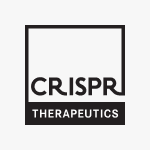CRISPR Therapeutics Q3 2023 Earnings Report
Key Takeaways
CRISPR Therapeutics reported its Q3 2023 financial results, showing a net loss of $112.2 million compared to a net loss of $174.5 million for the third quarter of 2022. The company's cash, cash equivalents, and marketable securities totaled $1,739.8 million as of September 30, 2023. Significant progress was noted across its clinical pipeline, especially with exa-cel awaiting FDA decision.
Advisory Committee meeting completed for exa-cel for severe sickle cell disease, with a PDUFA target action date of December 8, 2023.
Exa-cel assigned PDUFA target action date of March 30, 2024 for transfusion-dependent beta thalassemia.
Clinical trials are ongoing for CAR T product candidates, CTX110 and CTX112, targeting CD19 in B-cell malignancies.
Phase 1 clinical trial initiated for CTX310, targeting angiopoietin-related protein 3 (ANGPTL3).
Forward Guidance
CRISPR Therapeutics is advancing its pipeline with key milestones expected in the near term, particularly the PDUFA date for exa-cel and the progression of in vivo programs. They are also advancing additional programs utilizing in vivo delivery to address both rare and common diseases.
Positive Outlook
- Potential approval of exa-cel could bring a transformative therapy to patients living with sickle cell disease.
- Advancing multiple in vivo programs directed towards cardiovascular indications and beyond.
- CTX310 and CTX320 have the potential to shift the treatment paradigm for ASCVD with a single-dose, potentially life-long durable editing approach.
- Received a new grant from the Bill & Melinda Gates Foundation to research in vivo gene editing of hematopoietic stem and progenitor cells (HSPCs).
- Advancing additional programs utilizing in vivo delivery to address both rare and common diseases.
Challenges Ahead
- Efficacy and safety results from ongoing clinical trials, including of exa-cel, will not continue or be repeated in ongoing or planned clinical trials or may not support regulatory submissions.
Historical Earnings Impact
Analyze how earnings announcements historically affect stock price performance
